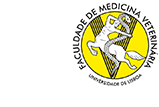
Education in Veterinary Medicine accredited by the European Association of Establishments for Veterinary Education (EAEVE)
The Master in Veterinary Medicine has the following objectives:
- Ensure adequate veterinary training, based on scientific research, during which students learn to care for animal health and welfare, contribute to a sustainable, competitive animal production, in respect for the environment, to protect humans from zoonoses and to ensure the quality and safety of food products of animal origin.
- Provide high-level training at which students demonstrate:
- To apply their knowledge and their ability to understand and solve problems in new situations, in wide multidisciplinary contexts, in the field of veterinary sciences.
- The ability to integrate knowledge, handle complex issues, develop solutions and make judgments in situations of limited or incomplete information, including reflections on the implications and ethical and social responsibilities that result from those solutions and judgments.
- Be able to communicate their conclusions, and the knowledge and reasoning that underlie them, in a clear and objective manner.
- Develop skills to enable them to an autonomous lifelong learning.
Integrated Master in Veterinary Medicine - Regulation (.pdf)
Study Plan
New Study Plan (PT) - published on the DGES platform (SIMGES)
Optional Units
| 3rd | 4th | 5th YEARS | |
|---|---|
| The optional cast will be determined annually by the legally and statutorily competent body of FMV-ULisboa. | 2.0 |

